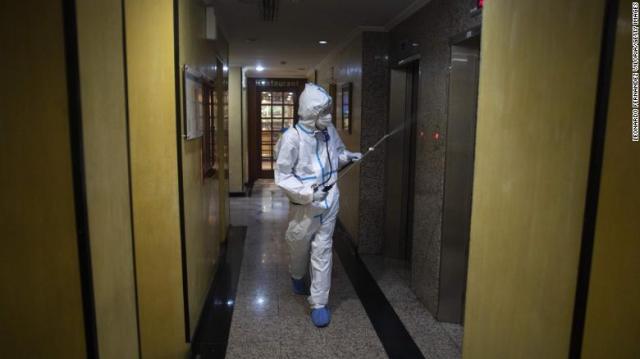
The woman’s voice shakes as she recalls her quarantine days in a Venezuela motel.
By CNN Américas – Vasco Cotovio and Isa Soares
“I sometimes am sleeping at night and I wake up thinking I am in the motel,” she says, tearing up. “I still feel traumatized.”
She, like the more than two dozen healthcare professionals or aid workers we spoke with to inform this report, asked CNN not to reveal their identity for fear of reprisal from the Venezuelan government.
Her ordeal began when her father died in the once-oil rich city of Maracaibo, in northeastern Venezuela. Doctors suspected that he was a victim of Covid-19, though test results were inconclusive. Still in mourning, his whole family was required to take a rapid test. Hers also came back inconclusive.
From that point on, her life was completely controlled by Venezuela’s government, she says – from where she slept to what she ate. “I was immediately isolated from that moment on. I heard nothing from my family, I didn’t have any contact with them, I couldn’t get anywhere near them,” she says. “I felt frustrated, I thought I was going to die.”
First she was put in a government-run diagnostics center for three days, where she says she shared a room with no air conditioning with four other patients. She had to share a dirty bathroom with the other suspected cases, two of whom, she says, “were in very poor health.”
Then she was told she would be transferred to a motel.
Unsanitary, crowded and prison-like
?Doctors we spoke to say Venezuela’s government has been using motels and other makeshift facilities to quarantine patients suspected of having the novel coronavirus, in a bid to separate them from the general population and keep them from overburdening the country’s already depleted and crumbling hospitals. But these facilities have earned a reputation for being unsanitary, crowded and prison-like, with many Venezuelans fearing being locked inside them.
“I couldn’t do anything. It upset me, it bothered me,” she says, recalling begging officials to let her quarantine at home. “I told them that other countries isolate people inside their homes.”
She argued that she didn’t need medical surveillance – she felt fine, and had no symptoms. But ?authorities were unmoved. The mother of three was sent to a motel run by a local councilman with the help of three to four Cuban doctors, she says, estimating that about 100 suspected Covid-19 patients were held there in total.
Conditions at the motel were slightly better than at the diagnostics center but still uncomfortable, the woman said: She was given her own room, with her own bathroom, but that was about it. Like in the rest of Maracaibo, electricity was intermittent, which meant there was little use for the air conditioning or the TV in her room, and the toilet only functioned intermittently. She was given drinking water twice a day and in very limited quantities; and personal hygiene items were in short supply.
“I spent five days without toothpaste,” she recalls.
…
Read More: CNN Américas – ‘I thought I was going to die.’ Inside Venezuela’s mandatory quarantine motels
…

